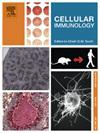干扰素α -2b气溶胶治疗SARS-CoV-2组粒变异患者的疗效和安全性:一项随机对照单盲研究
IF 2.9
4区 医学
Q2 CELL BIOLOGY
引用次数: 0
摘要
I型干扰素(IFN)治疗COVID-19的疗效一直存在争议。本研究通过随机、单盲临床试验,评估重组人α 2b干扰素(ifn - α 2b)在2022年上海欧米克隆疫情期间治疗COVID-19患者的疗效。研究队列包括505例患者,根据临床症状分为无症状、轻度或中度。将该队列分为实验组和对照组,实验组采用雾化吸入IFN-alpha2b治疗7 d,对照组采用生理盐水替代IFN-alpha2b治疗7 d。通过测量住院时间、临床症状的改善和不良事件的发生来评估有效性和安全性。虽然两组之间在总住院时间或症状改善方面没有显著差异,但IFN-alpha2b治疗与无症状亚组的住院时间显著缩短相关。多因素Cox回归分析发现,IFN雾化治疗是12天内出院的积极预测因素,入院时的白细胞计数和入院时的IL-4水平是潜在的负面预测因素。在安全性方面,两组在治疗过程中不良反应发生率无显著差异。总的来说,我们的研究表明,通过雾化吸入给药的I型IFN可能特别对COVID-19患者中的无症状亚组有益,表明选择性疗效。本文章由计算机程序翻译,如有差异,请以英文原文为准。
Efficacy and safety of interferon alpha-2b aerosol therapy for patients infected with the SARS-CoV-2 omicron variant: A randomized controlled single-blind study
The efficacy of Type I interferon (IFN) in treating COVID-19 has remained controversial. In this study, we conducted a randomized, single-blind clinical trial to evaluate the efficacy of recombinant human interferon alpha 2b (IFN-alpha2b) in treating COVID-19 patients during the Omicron outbreak in Shanghai in 2022. The study cohort included 505 patients, classified as asymptomatic, mild, or moderate based on clinical symptoms. The cohort was divided into an experimental group, which received a 7-day course of nebulized inhalation of IFN-alpha2b, and a control group, which received an identical treatment course using physiological saline in place of IFN-alpha2b. Effectiveness and safety were assessed by measuring the length of hospital stay, improvement in clinical symptoms, and occurrence of adverse events. While there were no significant differences in overall hospital stay or symptom improvement between the two groups, IFN-alpha2b treatment was associated with a significantly shorter hospitalization time in the asymptomatic subgroup. Multivariate Cox regression analysis identified IFN nebulization therapy as a positive predictor of discharge within 12 days, alongside the white blood cell count at admission, and the IL-4 level at admission as a potential negative predictor. Regarding safety, there was no significant difference in the incidence of adverse reactions between the two groups during treatment. Collectively, our study suggests that Type I IFN, when administered via nebulized inhalation, may offer benefits specifically for the asymptomatic subgroup among COVID-19 patients, indicating selective efficacy.
求助全文
通过发布文献求助,成功后即可免费获取论文全文。
去求助
来源期刊

Cellular immunology
生物-免疫学
CiteScore
8.20
自引率
2.30%
发文量
102
审稿时长
30 days
期刊介绍:
Cellular Immunology publishes original investigations concerned with the immunological activities of cells in experimental or clinical situations. The scope of the journal encompasses the broad area of in vitro and in vivo studies of cellular immune responses. Purely clinical descriptive studies are not considered.
Research Areas include:
• Antigen receptor sites
• Autoimmunity
• Delayed-type hypersensitivity or cellular immunity
• Immunologic deficiency states and their reconstitution
• Immunologic surveillance and tumor immunity
• Immunomodulation
• Immunotherapy
• Lymphokines and cytokines
• Nonantibody immunity
• Parasite immunology
• Resistance to intracellular microbial and viral infection
• Thymus and lymphocyte immunobiology
• Transplantation immunology
• Tumor immunity.
 求助内容:
求助内容: 应助结果提醒方式:
应助结果提醒方式:


